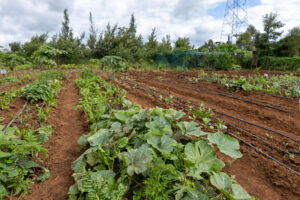
Photo credits: Evans Ogeto / Biovision
Agroecology goes beyond principles related to the biophysical aspects of food production and is practiced through social initiatives such as the Community Sustainable Agriculture and Healthy Environment (CSHEP). CSHEP is a community-based organization (CBO) that focuses primarily on training and capacity-building for smallholder farmers, especially women, in Kiambu and Kajiado counties in Kenya. CSHEP’s main goal is to educate, train, and support farmers to use sustainable, organic, and bio-intensive gardening and farming techniques to improve production and earnings, to become food-secure, and to safeguard the environment. CSHEP’s long-term goal is to encourage smallholder farmers, especially women and youth, to take decisions and actions based on a full understanding of the synergies between livelihoods and the environment. The aim is to foster holistic community development and well-being. Ultimately, CSHEP envisions a farming society able to control, use, and manage local resources prudently for their environmental well-being.
CSHEP has the following objectives:


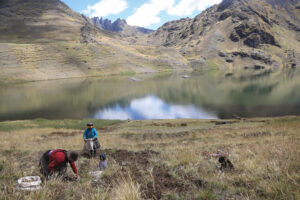



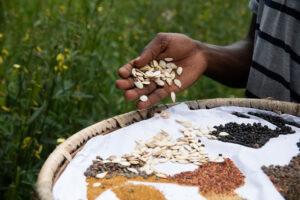

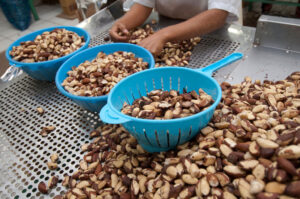

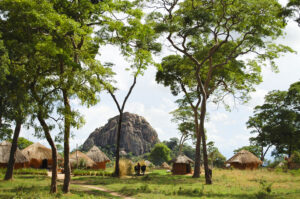

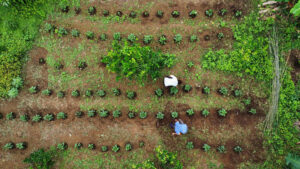 Bankable Nature Solutions (BNS) are projects that reduce pressure on ecosystems and drive resilience for people and nature while generating financial returns for communities and investors. They typically involve deploying grant funding to a local company to aid its transition to more climate-resilient and biodiversity-rich practices in a given landscape. The Dutch Fund for Climate and Development (DFCD) and Mobilising More for Climate (MoMo4C) have accumulated experience in testing and scaling these sorts of financial innovations.
Bankable Nature Solutions (BNS) are projects that reduce pressure on ecosystems and drive resilience for people and nature while generating financial returns for communities and investors. They typically involve deploying grant funding to a local company to aid its transition to more climate-resilient and biodiversity-rich practices in a given landscape. The Dutch Fund for Climate and Development (DFCD) and Mobilising More for Climate (MoMo4C) have accumulated experience in testing and scaling these sorts of financial innovations.